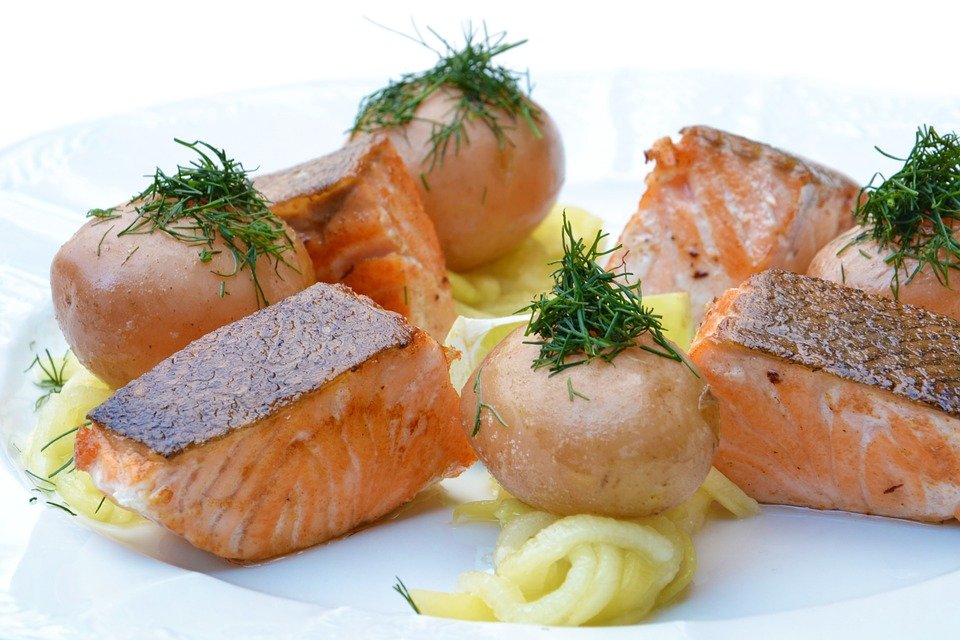What Is Gout? Gout is considered as the most common inflammatory disease of the arthrosis in the developed countries.
Epidemiological data from western countries like the USA, UK, New Zealand and others, report the increased prevalence of gout.
Studies have shown that the elderly and especially males are of higher risk for gout. Gout is characterized by an elevation in uric acid levels and regular episodes of inflammation such as arthritis.
Uric acid is the product of purines breakdown.
Even though purine is synthesized in your body, it’s also abundant in some foods. Your body excretes the unnecessary uric acid through urine.
Besides the uric acid elevation, a joint damage is happening in the background and gout is also related with higher risk of other diseases such as the cardiovascular diseases.
The main gout causal factors are the high socioeconomic status, regular alcohol consumption, overnutrition and obesity.
Even though there is great development in the drug treatment related to gout, the pillars of gout management remain the nutrition and the lifestyle.
Until recently there was a debate about the use of fish oil for gout, but researchers seem to have concluded about this issue.
Foods That Worsen Symptoms Of Gout
It is evidence-based that patients with gout have probably consumed large amounts of meat or giblets. Recent studies have confirmed the association between the intake of purine-rich food and the levels of uric acid.
Specifically, higher purine consumption leads to higher serum uric acid levels. Additionally, purine-rich foods are associated with higher risk of gout and gout attacks.
According to studies, eating more meat, organ meats (kidneys, liver) and seafood increases gout risk. Moreover, alcohol and specifically beer and liquor increase serum uric acid.
Should You Take Fish Oil For Gout?
Although nutritional recommendations for gout highlight the need of limited consumption of high-purine fish, fatty fish contain omega-3 fatty acids which are considered as anti-inflammatory factors.
Since gout is characterized as an inflammatory disease, researchers investigated the effect of omega 3 fatty acids in gout patients.
They concluded that fatty fish which are rich in omega-3 fatty acids, had a protective effect and resulted to reduction of gout attacks.
Another study, published in 2013, investigated the association between omega 3 fatty acids and inflammation.
Researchers concluded that omega-3 fatty acids suppressed inflammation and might have clinical importance and use in inflammatory diseases such as gout.
A more recent study (2016), tried to investigate the possible relation between omega-3 fatty acid levels and the frequency of gout attacks.
Researchers reported that higher omega-3 fatty acid levels were associated with lower incidence of gout attacks.
This finding is very promising because supplementation with omega-3 fatty acids combined with increased fatty fish consumption may be useful to avoid or limit gout attacks.

Moreover, the University of Maryland suggests that in case of omega-3 fatty acids deficiency, you should get fish oil for gout to reduce inflammation and improve your overall health.
Additionally, the university suggests increased consumption of salmon or halibut.
Other Nutritional Recommendations
Consumption of dairy products is considered as beneficial for reducing gout risk. Contrary to meat, purine-rich plant foods do not increase the risk of gout.
This is because purine intake is not the only factor considered, but their endogenous production and role on renal excretion matters significantly.
Conclusion
Despite the number of new drugs developed to battle gout, researchers claim that almost 90% of patients with gout are poorly managed and they regularly experience gout attacks.
The role of diet is crucial and recent findings recommend the use of fish oil for gout. A well-balanced diet and a wise supplementation of nutrients such as omega-3s, can improve the quality of your life and make you more energetic, healthy and social.
References:
1. Z Rheumatol. 2015 Sep;74(7):631-6. doi: 10.1007/s00393-015-1580-7. [Austrian nutrition and lifestyle recommendations for gout and hyperuricemia]. [Article in German] Sautner J1, Eichbauer-Sturm G, Gruber J, Puchner R, Spellitz P, Strehblow C, Zwerina J, Eberl G
2. Clin Rheumatol. 2013 Jul;32(7):943-59. doi: 10.1007/s10067-013-2274-7. Epub 2013 May 11. Chinese herbal medicine for gout: a systematic review of randomized clinical trials. Li XX, Han M, Wang YY, Liu JP
3. http://www.mayoclinic.org/healthy-lifestyle/nutrition-and-healthy-eating/in-depth/gout-diet/art-20048524
4. Nutr Hosp. 2014 Apr 1;29(4):760-70. doi: 10.3305/nh.2014.29.4.7196. [Hyperuricemia and gout; the role of diet].
[Article in Spanish; Abstract available in Spanish from the publisher] Álvarez-Lario B, Alonso-Valdivielso JL
5. Biol Pharm Bull. 2014;37(5):709-21. Epub 2014 Feb 20. Total purine and purine base content of common foodstuffs for facilitating nutritional therapy for gout and hyperuricemia. Kaneko K, Aoyagi Y, Fukuuchi T, Inazawa K, Yamaoka N.
6. Katsilambros, N., Dimosthenopoulos, C., Kontogianni, M., Manglara, E. and Poulia, K. (2011). Clinical Nutrition in Practice. 1st ed. Somerset: Wiley.
7. http://acrabstracts.org/abstract/do-omega-3-fatty-acids-reduce-risk-of-recurrent-gout-attacks/
8. Immunity. 2013 Jun 27;38(6):1154-63. doi: 10.1016/j.immuni.2013.05.015. Omega-3 fatty acids prevent inflammation and metabolic disorder through inhibition of NLRP3 inflammasome activation. Yan Y, Jiang W, Spinetti T, Tardivel A, Castillo R, Bourquin C, Guarda G, Tian Z, Tschopp J, Zhou R.
9. Ann Rheum Dis. 2016 Apr;75(4):784-5. doi: 10.1136/annrheumdis-2015-208767. Epub 2015 Dec 29. Low omega-3 fatty acid levels associate with frequent gout attacks: a case control study. Abhishek A, Valdes AM, Doherty M
10. http://umm.edu/health/medical/altmed/condition/gout
11. Ther Umsch. 2016;73(3):153-8. doi: 10.1024/0040-5930/a000772. [Nutritional therapy of gout]. [Article in German] Nickolai B, Kiss C
12. F1000Res. 2017 Mar 10;6:247. doi: 10.12688/f1000research.9402.1. eCollection 2017. Recent advances in understanding and managing gout. Igel TF, Krasnokutsky S, Pillinger MH




